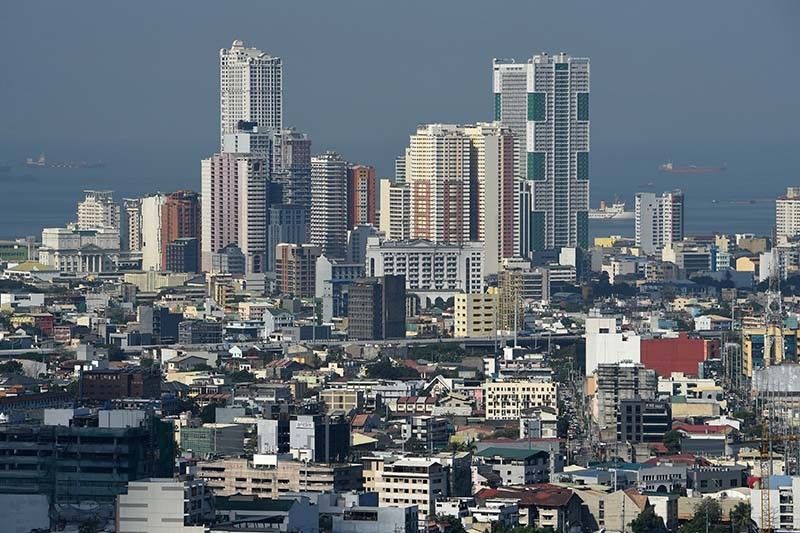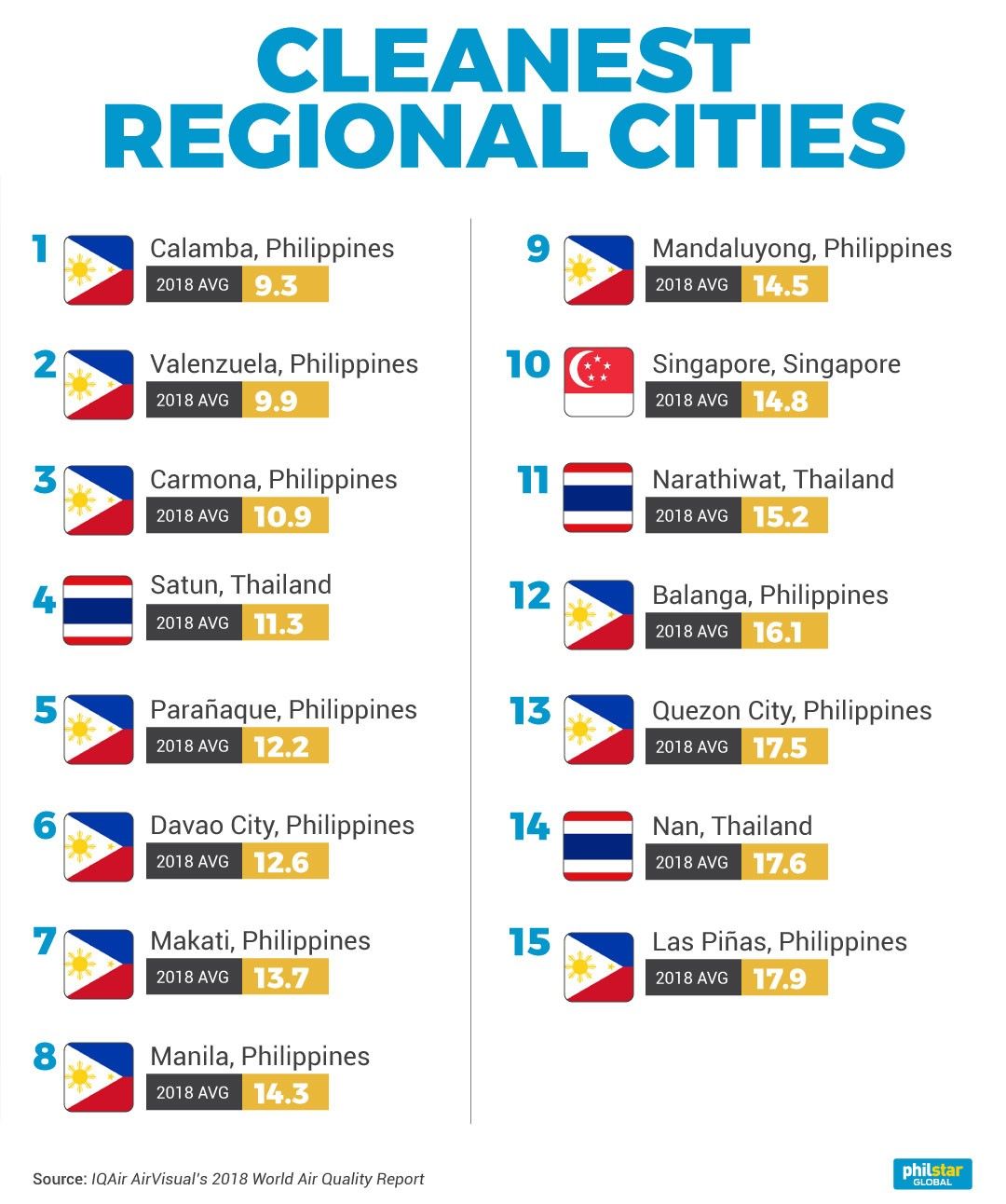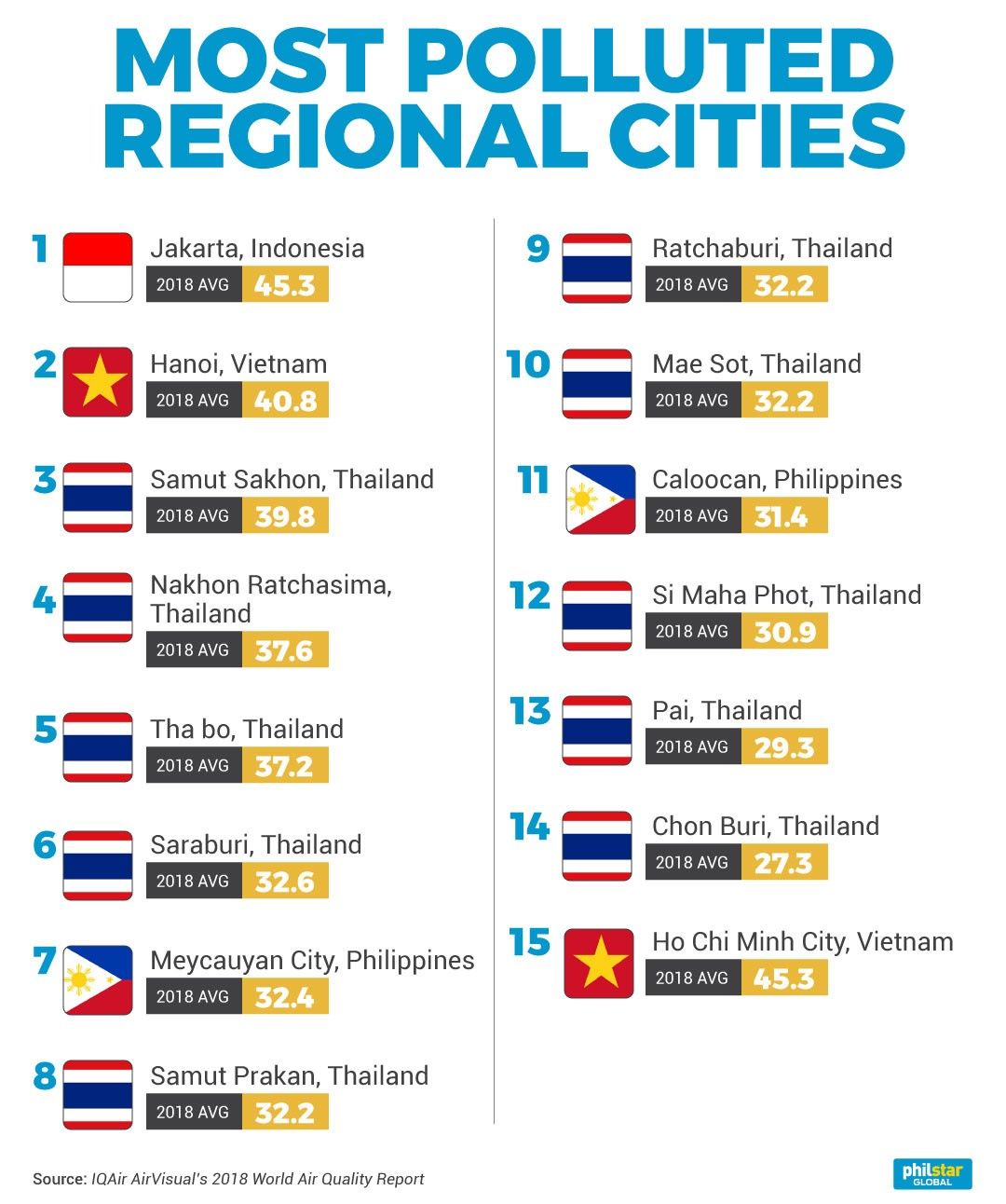11 of 15 cities in Southeast Asia with cleanest air are in Philippines — report

MANILA, Philippines (Update 1, 4:36 p.m.) — Eleven of the cities in Southeast Asia with cleanest air are in the Philippines, with Calamba in Laguna taking the top spot.
This is according to Switzerland-based IQ AirVisual and Greenpeace’s 2018 Air Quality Report, which measured the amount of fine particulate matter known as PM2.5 (µg/m³) in cities in 73 countries.
PM2.5 is a particulate matter (ambient airborne particles), which measures up to 2.5 microns in size and causes a wide range of short and long term health effects. Common sources of PM include combustion as well as through other pollutants reacting in the atmosphere.
The Philippines ranked 48th on the list with an average of 14.6 µg/m³ of PM2.5, classified as “moderate.” The country fared better than its Southeast Asia counterparts such as Singapore, Cambodia, Thailand, Vietnam and Indonesia.
Bangladesh was the most polluted country last year (97.1 µg/m³ ), while Iceland was the cleanest (5 µg/m³).
The nation’s capital, Manila, ranked 42nd with moderate 14.3 µg/m³. New Delhi in India (113.5 µg/m³) had the world’s highest recorded air pollution in 2018, while Wellington in New Zealand (6 µg/m³) was the cleanest.
Calamba as the cleanest city in SEA
Calamba led the 11 Philippine cities on the list of cleanest cities in Southeast Asia. It had 9.3 µg/m³ of PM2.5, which is pursuant to the annual mean exposure threshold of the World Health Organization at 10 µg/m³.
Valenzuela City (9.9 µg/m³) and Carmona City (10.9 µg/m³) ranked second and third, respectively.
Other Philippine cities on the list were Parañaque (12.2 µg/m³), Davao (12.2 µg/m³), Makati (13.7 µg/m³), Manila (14.3 µg/m³), Mandaluyong (14.5 µg/m³), Balanga (16.1 µg/m³), Quezon (17.5 µg/m³) and Las Piñas (17.9 µg/m³).
Meanwhile, Jakarta (45.3 µg/m³) and Hanoi (40.8 µg/m³) had the highest recorded air pollution in the region.
Meycauyan (32.4 µg/m³) and Caloocan (31.4 µg/m³) were included on the list of most polluted cities.
“Air pollution steals our livelihoods and our futures, but we can change that. In addition to human lives lost, there’s an estimated global cost of 225 billion dollars in lost labor and trillions in medical costs. This has enormous impacts, on our health and on our wallets,” Yeb Sano, executive director of Greenpeace Southeast Asia, said.
An earlier version of this article erroneously wrote that Bangladesh has 14.1 µg/m³ PM2.5 concentration. This has been corrected.
addslideshowhere


- Latest
- Trending






























